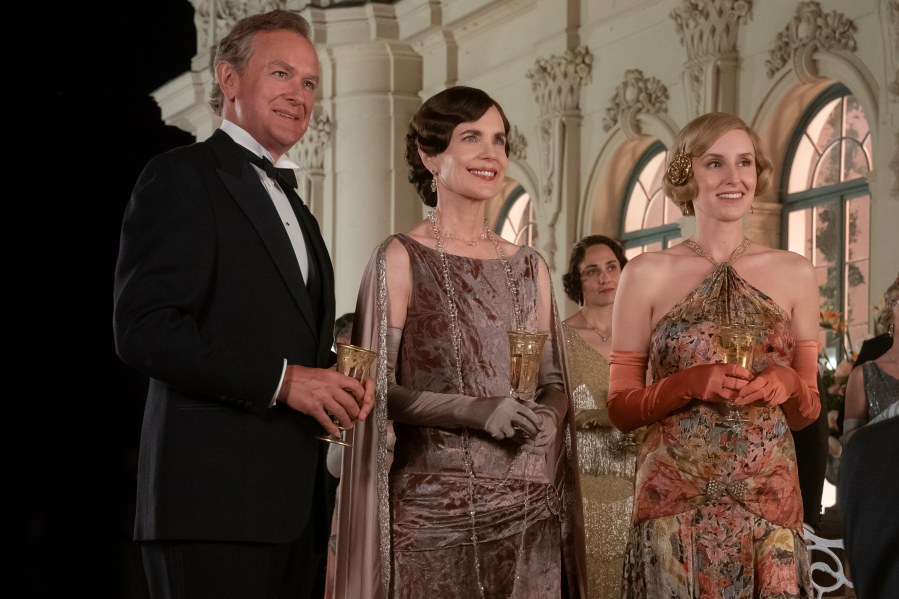“I was looking for an invasion of Downton by the 20th century in a fairly indigestible way — not just some character turning up for lunch but something that overturned order.”
Julian Fellowes, the creator of the beloved TV series “Downton Abbey” and the writer of the film of the same name released in theaters in 2019, says this during a recent video interview to promote its new sequel, “Downton Abbey: A New Era.”
He’s been asked what inspired the storyline in which a Hollywood film crew in the late 1920s comes to Downton Abbey — the Yorkshire estate home to the fictional Crawley family and their servants — to film a silent movie.
Early on in the production of “The Gambler,” the decision is made to turn it into a “talkie,” meaning dialogue will need to be recorded not only for scenes yet to be filmed but also for those that have been. This leads to numerous challenges, including a leading lady — Laura Haddock’s Myrna Dalgleish — whose stardom has come from being seen but not heard.



